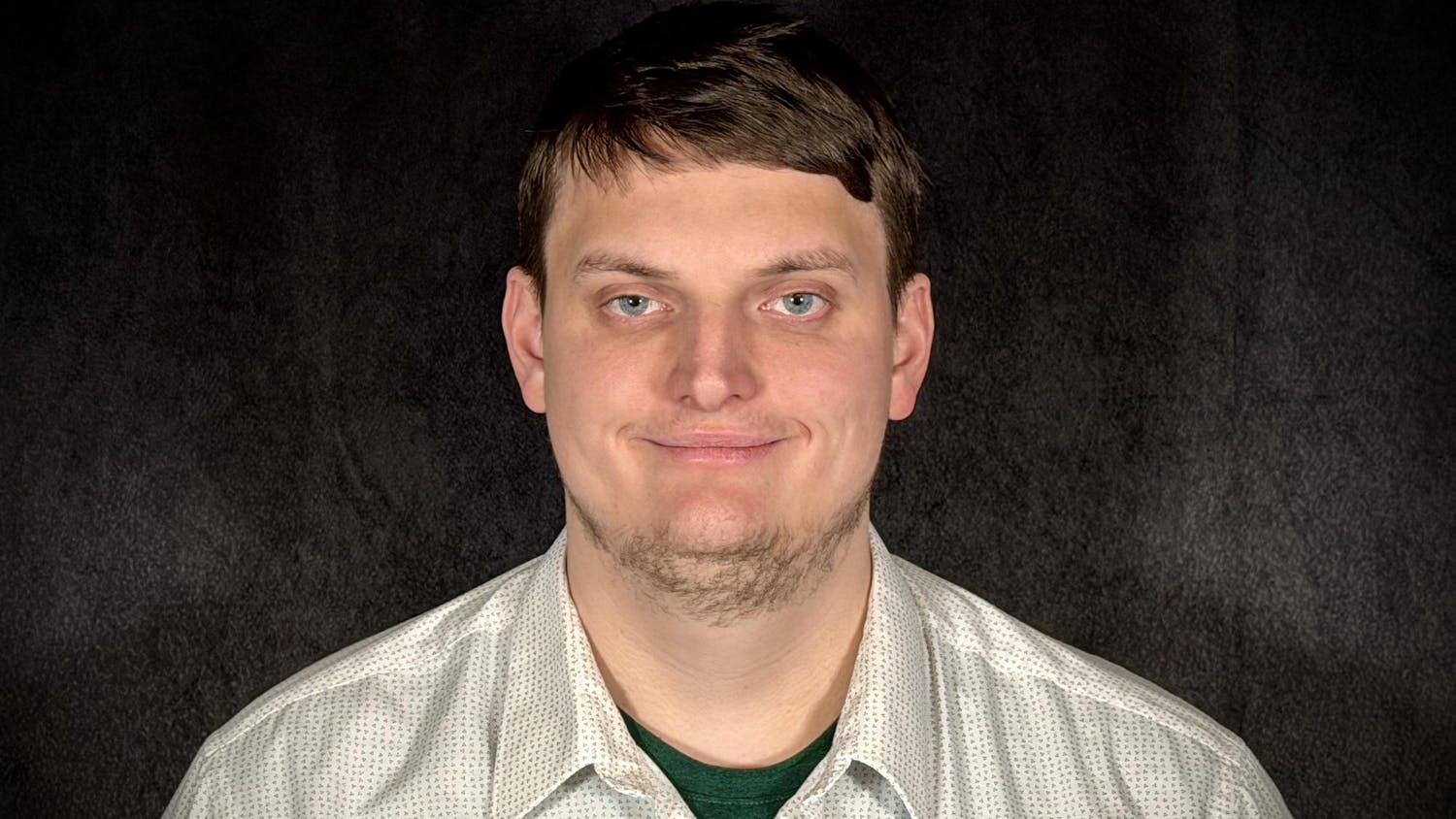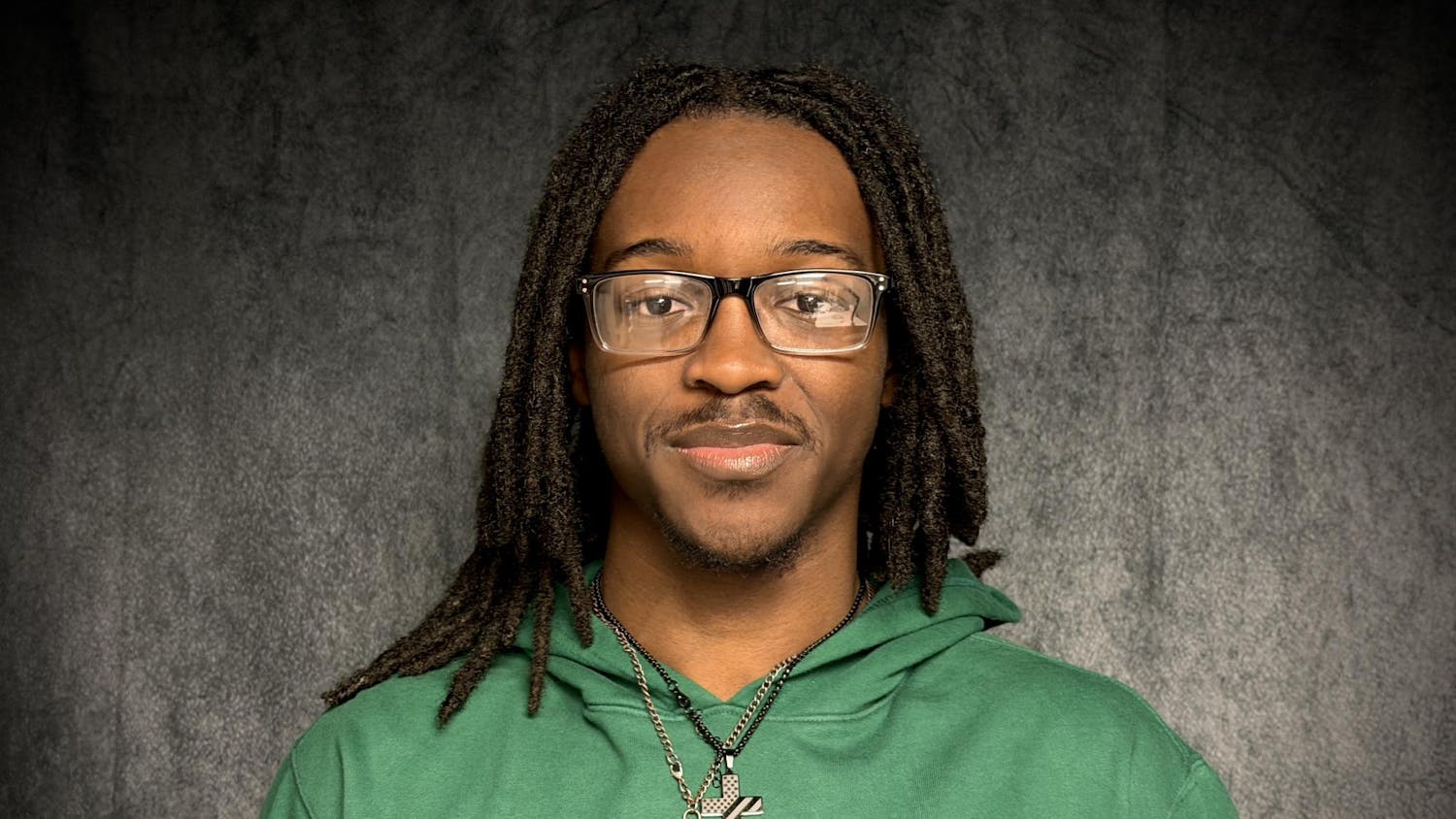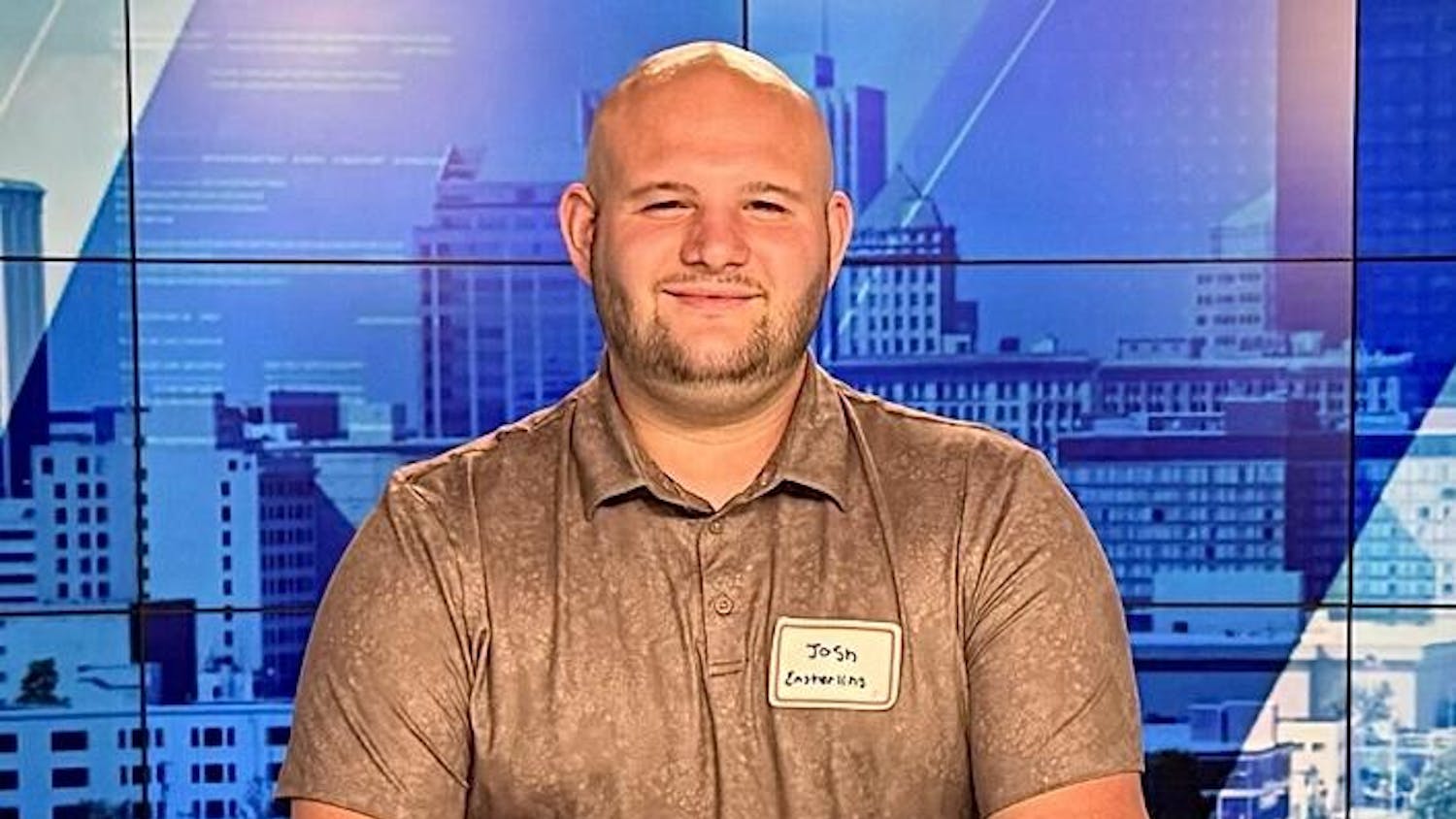On Wednesday, March 26, students and faculty of the school of Professional Psychology held a protest in Wright State University's quad. Many people from the community joined the cause, participated in the activities set up for the peaceful rally, and listened to powerful speeches from community members and passionate advocates.
Protest and speakers
In the quad on WSU's Dayton campus, flags were raised and waved in support of various gender identities. People gathered around the posterboards which held pictures of transgender, intersex and otherwise gender queer individuals that were notable throughout history. Books on trans and non-binary life experiences were placed on tables, along with blank posters for sign making.


Tess Zagorski is a second-year WSU School of Professional Psychology doctoral student. She led the protest in many ways, making an opening speech. leading attendees in chants and keeping the energy up.
"On February 27 at 9:52 am, Dr. Chaney, Vice President for Inclusive Excellence, sent out an email to the Wright State community. This email expressed compliance with Ohio Senate Bill 104 that had taken effect only two days before. This bill called for the removal of gender neutral bathrooms, showers, locker rooms and changing rooms, requiring by law that universities across Ohio convert these spaces to women's and men's only. This email stated that these spaces are for the exclusive use of individuals assigned male or female at birth," Zagorski explained.
"There was no regard for intersex students, trans students, non-binary students, gender fluid students and students who do not identify on this binary. Later, we received confirmation from the administration that the conversation about student safety, specifically for the trans and non-binary community, was never brought up," Zagorski said.
Zagorski also pointed attendees in the direction of the blank sheets of paper and markers that were supplied. She encouraged students to write letters of support for trans and non-binary students and the right for inclusive bathroom spaces, addressing these notes to WSU President Sue Edwards.
"The intention when making a call to action to the WSU student body and greater Ohio community was not just to push for the expansion of gender neutral bathrooms for equal access, but it was in the hopes that we can make it very known to Ohio at large that, although the trans and non binary population is only around 1%, their community is much, much larger," Zagorski stated.
Her point was made clear by all the students who listened and joined in the chants that Zagorski led. Throughout the event, she shared many powerful words, including her testimony as a sister to a non-binary sibling. She also introduced other speakers, including some from the WSU community and some from other groups.
Drew Weitzman is a WSU sophomore majoring in theater studies. They are a trans and disability rights activist, using their willingness to speak up for their communities.
"I'm here to speak because holding my tongue will cause it to burn a hole in my mouth. This rally was originally supposed to be a bathroom sit-in for five hours in Millet Hall, [but] we had to make the decision to bring our statements outside and reduce our timeline for the safety of our attendees. Instead of being a fraction as disruptive as these policies are to our lives, we had to choose instead to bring our protest outside to make sure we had protection for the duration of our time here. The fact that this is necessary is disgusting," Weitzman said.
Throughout the event, there were many individuals in neon vests who were there to ensure the safety of all the individuals.
Psychological aspects and empathy
Michelle Vaughan is a licensed psychologist with a PhD and is a member of and advocate for the LGBTQ+ community. She works closely with many individuals in the community as a psychologist and shared her perspective on the matter.
"We know from the research, and those of us in practice with this population, which I am, know that restricted access to bathrooms and other spaces is directly related to mental health symptoms. It is damaging for people's mental health, and it's also damaging to your physical health. Not being able to take care of your most basic physical need in a safe way that aligns with where you feel most comfortable is a danger to your health," Vaughan said.
Vaughan expressed that everyone deserves the right to do this without having to travel across the building for a family stall.


Regarding false claims that inclusive bathroom spaces will lead to increased violence against women and girls, Vaughan said, "It's a fear-mongering technique. We have not seen any data in places with more accessible bathrooms. There's no change in those assaults, because the folks who are most likely to assault folks, particularly women and girls, are [cisgender], [heterosexual] men in power, and a sign on the bathroom does nothing for the folks who are actually a threat, which are predominantly mathematically cis-het men looking to abuse power. A sign on a bathroom does nothing to increase or decrease that."
In addition to being knowledgeable on the topic, Vaughan took a leadership role in facilitating the event. In addition, some members of the Student Government Association took active roles in the protest, promoting it and connecting people to resources, such as Impact of Bathroom Discrimination and Trans Women and Public Restrooms.
Amana Koeller is a senior political science major who attended the event to show support for the cause. She is also the Policy Administrator for SGA.
"I think it's also awesome that people from other more professional programs are putting on these events, rather than just like a bunch of undergrad students, considering this was hosted by School of Professional Psychology students. So I'm more than happy to help support that," Koeller said.
Koeller referenced the many graduate and doctoral students present, saying that she was glad to see such support. Zagorski was not the only representative from the School of Professional Psychology, although she was the most outspoken of any of the people active at the protest.
"I don't think it's a bad thing to have sympathy and empathy for other people, and this issue doesn't actually inherently affect you, so I don't feel like it should be something that's problematic to advocate for," Koeller said, referencing those who are upset by inclusive bathroom spaces.
The impact
Between the chants, posters, speeches and letters, it was easy for attendees to feel the impact of the protest they were partaking in at the moment.
Hannah is a WSU alumnus who graduated in 2014. She asked to keep her last name out of the press, but shared the reasons why she came back to campus for the cause.
"We have to stand together in solidarity with everyone. So I saw this on social media this morning, and I haven't come back to campus in over a decade, and this is important enough to come back," Hannah said.
Hannah brought a sign that she made, writing messages of support.
"I was a different person when I was here. Unfortunately, I was raised in a very conservative household, and it wasn't until the summer of 2020 that I kind of woke up and realized what was happening. So it didn't affect me, and [to me] it didn't matter then, but it did. I didn't know [back then], and I know now," Hannah said. "It doesn't help make up for it, but it [helps] right the wrongs."
She shows that it is never too late for a person to change their mind on an issue and side with empathy for others.
Coleman Fox is a freshman computer science major. He stopped by the rally to show his support, carrying a sign and stopping to read the displays that were put out, each sharing the history of transgender and non-binary individuals.
Fox expressed that he learned a lot from reading these displays, and that it should be taught in schools. In addition, he shared his support for inclusive bathroom spaces on campus.
"It's built for the safety of others. And I, you know, I don't feel uncomfortable in that space at all. It's never infringed on my rights. It helps other people's rights. It helps other people feel comfortable," Fox said.
While this protest might not have been the final solution to this problem, the LGBTQ+ community will not give up on their call for solidarity in the face of this hardship. WSU may not restore inclusive bathrooms after this protest, but it is still important for students to make their voices and desires heard, just as they did at this bathroom protest.









